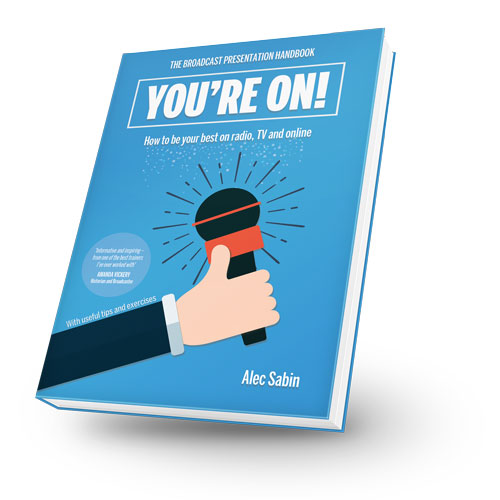Radio Presentation
Alec can help you become a confident and assured radio and podcast performer, or improve your skills. Alec regularly trains journalists and others at the BBC, both in English and other languages, to become effective radio communicators. Alec trains news readers, news and current affairs and feature presenters and interviewers, reporters, correspondents, announcers, music presenters and DJs. Alec uses tried and tested techniques.
What radio and related skills can I learn?
Reporting
Reading the script – getting it off the page
Programme Presenting
Live Broadcasting
Talking to time
Music Presenting
Station and Programme Style
Ad-libbing
Interviewing
Two-ways
Being interviewed
Phone-Ins
Problems – eg Nerves
Portable equipment
Making packages
Documentaries
Podcasting
How do you engage an audience on the radio?
How do you find your own style – your own on-air identity?
How to Lift a Script Off the Page
Interviewing
Asking the right questions means doing your prep. Find out how to get the best out of your interviewee with tips in ‘You’re On!’
Ad-Libbing

You're On!
Alec’s latest book ‘You’re On!’ is available to buy using the link below. The book provides exercises to improve vocal quality and breathing, tips on controlling nerves, and an insight into how broadcast audio and video technology can work for you. There is expert guidance and further exercises on everything from ad-libbing and podcasting to reading a script and interviewing.